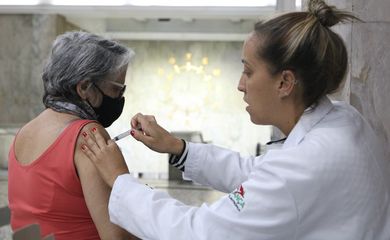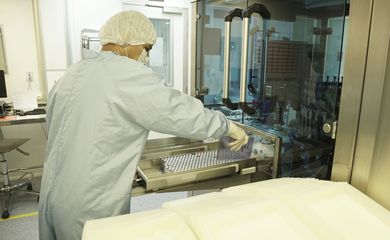Brazil to tackle 14 diseases that affect socially vulnerable people

The Brazilian government intends to eliminate or mitigate 14 diseases and infections that most intensely affect people facing greater social vulnerability. These are known as socially determined diseases.

The decree establishing the Brasil Saudável (“Healthy Brazil”) program was signed by President Lula and Health Minister Nísia Trindade.
Official data show that socially determined diseases were responsible for the deaths of more than 59 thousand people in Brazil from 2017 to 2021. The diseases targeted for elimination include malaria, Chagas disease, and schistosomiasis, as well as vertically transmitted infections such as syphilis, hepatitis B, and HIV.
The initiative also aims to reduce the transmission of tuberculosis, leprosy, viral hepatitis, and HIV/AIDS. In all, 14 ministries will work on various fronts, such as tackling hunger and poverty; expanding human rights; social protection for priority populations and territories; training workers, social movements, and society; and expanding infrastructure, basic sanitation, and environmental actions.
Altogether, 175 municipalities have been given priority status as they have a high burden of two or more socially determined diseases and infections.
Launch ceremony
Minister Trindade described the campaign as strategic for Brazil and an important item on the agenda. At the launch ceremony for the initiative on Wednesday (Feb. 7), she pointed out that socially determined diseases, contrary to what many think, are not caused by poverty—but by inequality.
In her speech, she said that social determinants also include ethnic and cultural determinants. In her view, inequality impacts not only the 14 diseases listed, but all types of illness, from chronic diseases to cancer treatment.
During the event, Pan American Health Organization Director-General Jarbas Barbosa called the program ambitious and stressed that the Americas are leading the world in eliminating diseases such as smallpox and malaria.
The director-general of the World Health Organization, Tedros Adhanom Ghebreyesus, also in attendance, labeled the initiative vital and highlighted the role of social movements. “They will give energy to this plan,” he declared. “It can’t be done by the government alone,” he added.

Dê sua opinião sobre a qualidade do conteúdo que você acessou.
Escolha sua manifestação em apenas um clique.
Você será direcionado(a) para o sistema Fala.BR, mas é com a EBC que estará dialogando. O Fala.BR é uma plataforma de comunicação da sociedade com a administração pública, por meio das Ouvidorias.
Sua opinião ajuda a EBC a melhorar os serviços e conteúdos ofertados ao cidadão. Por isso, não se esqueça de incluir na sua mensagem o link do conteúdo alvo de sua manifestação.
Clique aqui para mais informações sobre a Ouvidoria da EBC.










